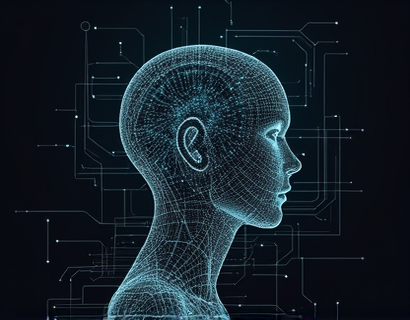Maximize Your Productivity with Intelligent AI Task Management
In today's fast-paced world, managing both personal and professional tasks efficiently is crucial for success. The integration of advanced AI technology into task management systems offers a revolutionary approach to streamlining workflows and enhancing productivity. Intelligent AI agents are designed to understand, predict, and automate tasks, allowing individuals and businesses to focus on high-priority activities that drive growth and achievement. This article delves into how these cutting-edge solutions can redefine task management, providing a smarter and more efficient way to handle daily responsibilities.
Understanding AI Task Management
AI task management leverages machine learning algorithms to analyze patterns, learn from user behavior, and automate repetitive tasks. These intelligent agents can prioritize tasks based on urgency and importance, ensuring that critical activities receive immediate attention. By integrating AI into task management, users can benefit from a system that not only organizes tasks but also anticipates needs and suggests optimal action plans.
The core functionality of AI task management systems includes task creation, scheduling, reminders, and automation. These systems can integrate with various calendars and productivity tools, creating a seamless workflow that adapts to the user's preferences and habits. The ability to customize and train these AI agents ensures that they become more effective over time, further enhancing productivity.
Benefits for Personal Productivity
For individuals, AI task management offers a personalized approach to managing daily activities. By inputting personal goals and preferences, the AI can create a tailored task list that aligns with long-term objectives. This ensures that time is allocated efficiently, reducing the likelihood of procrastination and increasing overall productivity.
One of the significant advantages is the reduction of mental load. Instead of constantly remembering tasks and deadlines, the AI handles this, freeing up cognitive resources for more complex and creative tasks. This mental offloading is particularly beneficial for those juggling multiple responsibilities, such as students, freelancers, and remote workers.
Moreover, AI task management systems can help in developing better time management skills. By analyzing how time is spent, these systems provide insights and recommendations for optimizing daily routines. For instance, they can identify time-wasting activities and suggest more productive alternatives, leading to a more balanced and fulfilling personal life.
Enhancing Professional Productivity
In a professional setting, AI task management can significantly streamline workflows and improve team collaboration. Project managers can use these systems to assign tasks, set deadlines, and track progress in real-time. This level of visibility ensures that everyone is on the same page, reducing misunderstandings and delays.
AI agents can also automate routine administrative tasks such as data entry, report generation, and email management. This automation not only saves time but also reduces the risk of human error, leading to higher quality work outputs. For businesses, this means increased efficiency, cost savings, and the ability to scale operations more effectively.
Another critical aspect is the ability to handle complex projects with multiple dependencies. AI can analyze project requirements, allocate resources, and adjust schedules dynamically based on real-time data. This adaptability ensures that projects stay on track, even when unexpected challenges arise.
Integration and Compatibility
The versatility of AI task management systems is one of their greatest strengths. These tools can integrate with a wide range of existing software and platforms, including email clients, project management tools, and calendar applications. This seamless integration ensures that users can continue using their preferred tools while benefiting from the advanced features of AI task management.
For businesses, this means minimal disruption to existing workflows and the ability to enhance productivity without the need for extensive re-training or system overhauls. The compatibility with various devices, including smartphones and tablets, ensures that tasks can be managed on-the-go, providing flexibility and convenience.
Customization and Personalization
One of the key features of intelligent AI task management is the level of customization available. Users can tailor the system to fit their specific needs and preferences, from setting custom priorities to defining unique task categories. This personalization ensures that the AI agent understands the user's workflow and can provide relevant suggestions and automations.
Machine learning algorithms continuously learn from user interactions, refining their understanding and improving their performance over time. This means that the AI becomes more accurate in predicting user needs and more effective in automating tasks, leading to a more intuitive and user-friendly experience.
Case Studies and Real-World Applications
Several organizations and individuals have already experienced the transformative impact of AI task management. For instance, a marketing agency implemented an AI-powered task management system to handle campaign planning and execution. The AI automated routine tasks such as scheduling social media posts and generating progress reports, allowing the team to focus on creative strategy and client engagement. As a result, the agency saw a 30% increase in project completion speed and a significant reduction in operational costs.
In the healthcare sector, a hospital adopted AI task management to streamline patient care coordination. The AI system automated appointment scheduling, medication reminders, and follow-up notifications, leading to improved patient satisfaction and more efficient use of medical staff time. The hospital reported a 25% reduction in administrative workload and a notable improvement in patient outcomes.
On a personal level, a freelance writer used an AI task management tool to organize writing projects, research, and deadlines. The AI helped prioritize tasks based on client requirements and personal goals, resulting in a more structured workflow and higher quality work. The writer noted a significant decrease in stress levels and an increase in productivity.
Challenges and Considerations
While the benefits of AI task management are clear, there are several considerations to keep in mind. One potential challenge is the initial setup and training required to get the AI agent aligned with the user's specific needs. However, most systems offer guided setup processes and customer support to facilitate this transition.
Privacy and data security are also important concerns. Reputable AI task management providers implement robust security measures to protect user data. Users should ensure that they choose solutions with strong encryption and compliance with data protection regulations.
Another consideration is the learning curve associated with adopting new technology. While AI task management systems are designed to be user-friendly, some users may require time to adapt. Providers often offer tutorials and support resources to help users get the most out of the system.
Future Trends in AI Task Management
The future of AI task management is promising, with ongoing advancements in machine learning and natural language processing. One trend is the integration of voice commands and conversational interfaces, making it even more convenient to interact with AI agents. This hands-free approach is particularly beneficial for users who are multitasking or on-the-go.
Another area of development is the enhancement of predictive analytics, allowing AI agents to not only automate tasks but also provide strategic insights and recommendations. This could include identifying trends, forecasting outcomes, and suggesting optimal action plans based on data-driven insights.
Furthermore, the convergence of AI task management with other emerging technologies, such as augmented reality and the Internet of Things (IoT), is expected to create even more powerful and integrated productivity solutions. These advancements will continue to redefine how we manage tasks and enhance productivity.
Conclusion
Intelligent AI task management represents a significant leap forward in productivity tools, offering a personalized and adaptive approach to managing both personal and professional tasks. By automating routine activities and providing strategic insights, these systems enable users to focus on high-priority activities, leading to enhanced efficiency and success. As the technology continues to evolve, the potential for even greater productivity gains is immense. Embracing AI task management is not just about staying current; it's about unlocking the full potential of one's time and capabilities.











































